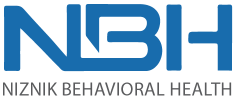How COVID-19 is Affecting the Recovery Community
Next to COVID-19, the opioid crisis has been coined the greatest public health crisis of our generation. A pandemic that many thought would quickly blow over is still causing collateral damage and there seems to be no end in sight. While some have gone into autopilot, others are overwhelmed and struggling to stay afloat. There is, however, a community of people who are especially vulnerable to the negative effects of the ongoing pandemic––the recovery community. They’re facing unique challenges during this global pandemic which could lead to mass relapses and fresh cases of substance use disorders. So, what is the current situation and how is COVID-19 affecting the recovery community?
Increasing Surge in Overdoses
During the incipient stages of the pandemic, some predicted it would have a catastrophic effect on the recovery community. So far, their predictions have proven accurate. According to the American Medical Association, national, state and local media has reported an increase in opioid-related deaths in over 35 states. While it is too early to know the true impact of the pandemic on the recovery community, existing numbers are concerning. Data gathered from ambulance teams, hospitals and police reports, tell us national overdoses have jumped 42 percent as of May. If care isn’t taken, rehospitalization rates could lead to another public health crisis.
What is causing the sudden increase in overdoses? Some tentative reasons could include the stress and anxiety caused by the pandemic, boredom, and loneliness.
For the recovery community, human interaction and social support are integral to sobriety, therefore, isolation puts them at risk. Without forms of continuing care like counseling, peer support groups, 12-step programs, or periodic drug and alcohol checks, staying sober can prove an uphill battle. Many could revert to negative coping mechanisms like substance abuse, and without therapy treatments negative thinking patterns may perpetuate these behaviors.
Synthetic Substances Circulating
It was assumed that COVID-19 would restrict access to drugs, considering closed borders and social distancing measures. However, that hasn’t been the case. Conversely, drugs are still accessible and synthetic drugs as well as unfamiliar substances could put them at risk. According to the Washington Post, synthetic drugs and uncommon substances are showing up in toxicology reports. This validates concerns about illicitly manufactured fentanyl and fentanyl analogs circulating during the pandemic.
To make matters worse, isolation means some people are using drugs alone. Consequentially, in the event of an overdose, they have nobody to administer drugs like naloxone that could save their lives. The impact COVID is having on emergency departments could also mean overdose patients are less likely to be put on medication therapies, which is critical for long-term recovery.
Lack of Access to Services
With COVID-19 potentially exacerbating the addiction crisis in America, now more than ever people need access to care and services. However, to reduce viral exposure, many core services like inpatient rehab and access to medications have been limited. Although some clients can be treated with outpatient care, others need inpatient treatment. For instance, individuals who have suffered a drug overdose or have severe alcohol withdrawal symptoms may need longer care with 24/7 monitoring.
How has access been reduced during COVID-19? To reduce viral exposure, some facilities have:
- Reduced some “non-essential” addiction services
- Reduced consultative activities for individuals with suspected or confirmed COVID-19
- Deprioritized chronic vulnerabilities as to focus on acute medical issues
- Shortage of staff and limited access to experts
- Changes in drug and alcohol testing
That said, limiting access to care can be counterproductive as some alcohol and drug withdrawal symptoms mimic that of COVID symptoms. Some examples include nausea, vomiting, sweating, and seizures. Seeing as this community already is already marginalized because of the stigma around substance abuse—they may be less likely to reach out for help when exhibiting symptoms.
Additionally, there are concerns that certain alcohol and drug behaviors could increase the risk of individuals contracting coronavirus. Examples of high-risk behaviors include not adhering to social distancing measures because of impaired judgement or unstable living arrangements, which can make maintaining hygiene challenging. Also, people with substance abuse disorders often have co-occurring health conditions and suppressed immune systems, increasing the risk of them contracting COVID. In light of this, restricting services could have a bilateral effect––exposing the recovery community to coronavirus and the risk of overdosing simultaneously.
Telehealth As a Solution
Telehealth plays a key role in the delivery of addiction treatment during COVID. To prevent the spread of the virus, virtual rehabilitation and online support groups have become the new normal. Although telehealth may not be the most favorable option for people recovering from substance abuse, it can still prove an effective source of support. Conversely, there are some people who prefer the discrete nature of telehealth services as they can maintain a level of anonymity.
Videoconferencing, texting, and mobile apps are just a few examples of how telehealth is being used. Such technologies enable clients to receive personal therapy, counseling, and peer support sessions virtually. These treatment modalities can help clients deal with anxiety and the psychological effects of the pandemic.
Several rehabilitation providers including our team at Niznik Behavioral Health are now offering telehealth services. If you know someone who is sober or has an ongoing substance use disorder, consider encouraging them to partake in telehealth services. While it may not produce the same effects of in-person treatment, it could save their lives.

